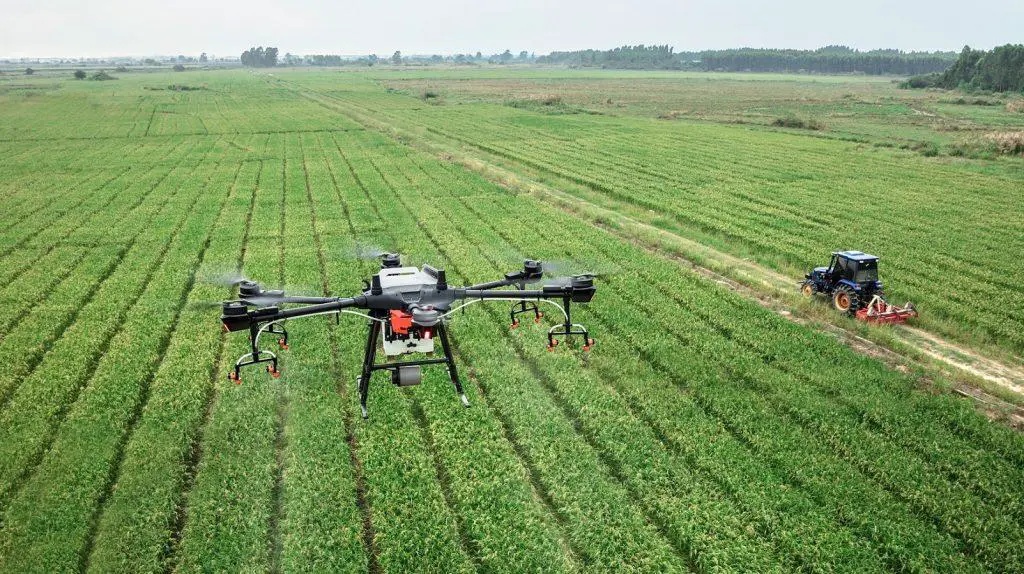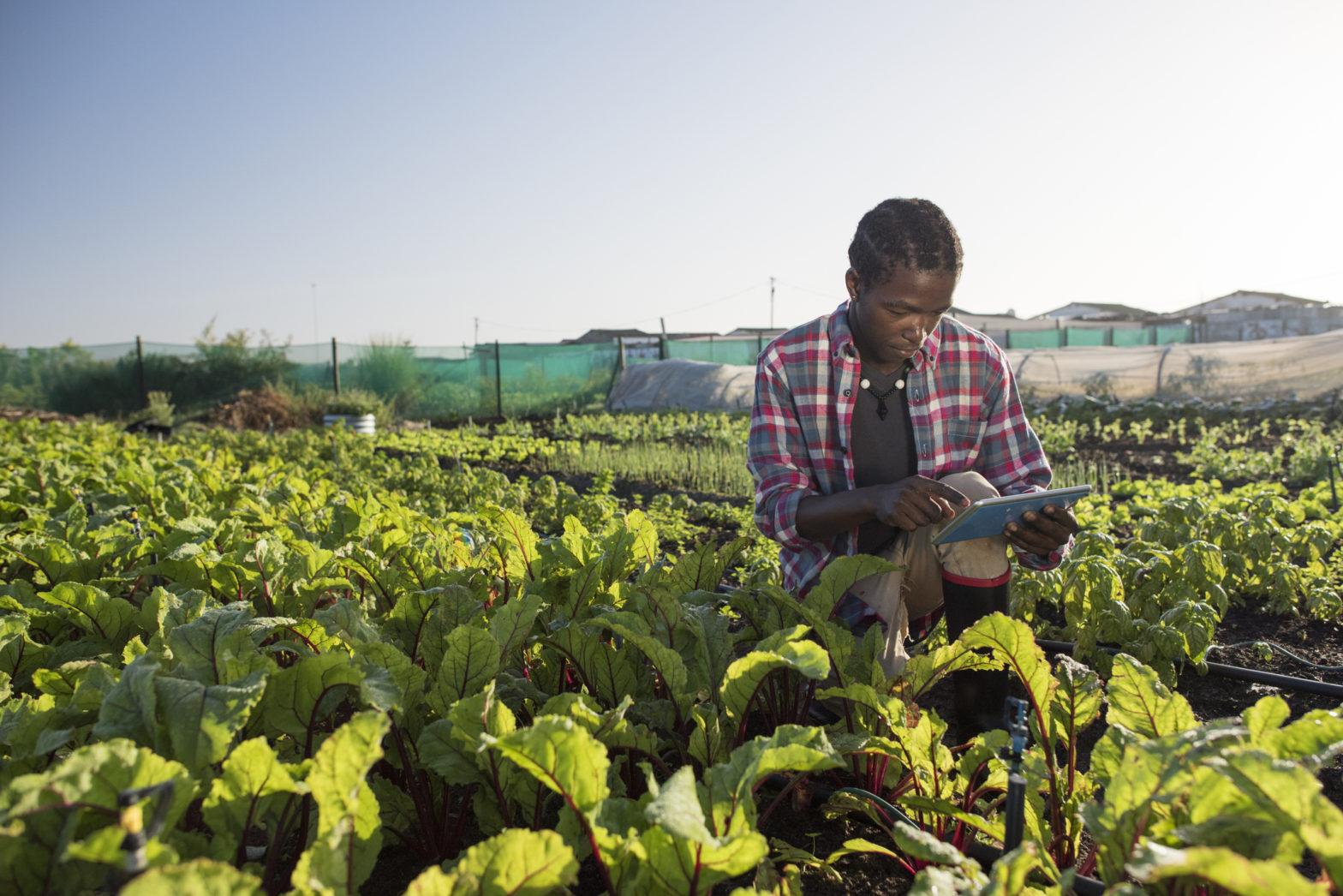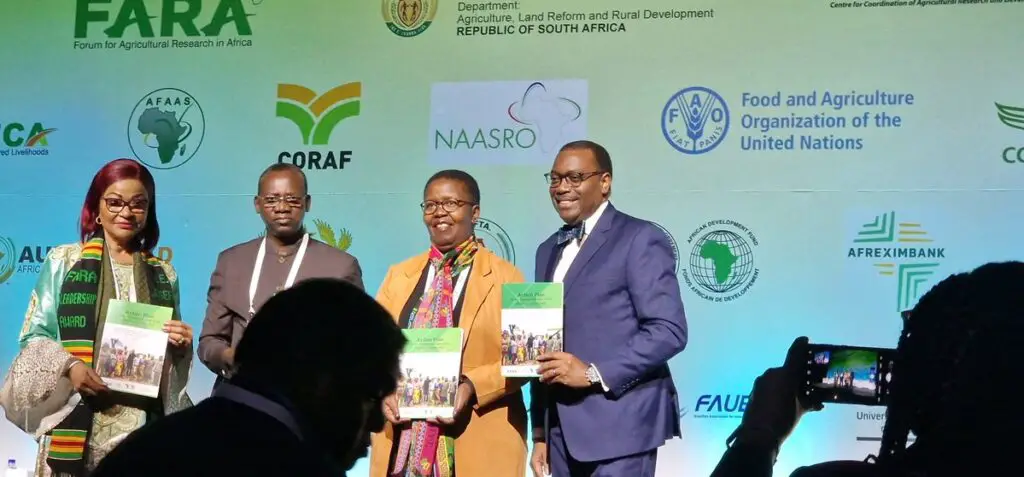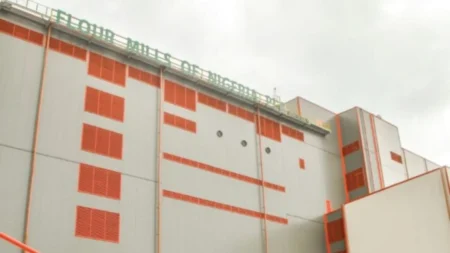- Agri-tech’s contribution to agribusiness in Africa is projected to help solve the food security crisis.
- The African Continental Free Trade Area (AfCFTA) will boost Africa’s agri-business.
- A recent World Bank report showed that 73 million people in Eastern and Southern Africa face acute food insecurity.
Increased investments in agri-business will see Agriculture Technology (Agri-Tech) in Africa record massive growth. The food security crisis has ravaged many African countries. Consequently, the situation has attracted investor interest. This has instigated a digital revolution promoting the Agri-tech start-up ecosystem. Agri-tech startups remain instrumental in developing the agribusiness sector. The sector wields enormous economic potential for the continent.
Agri-tech financing
Fundraising by Agri-tech startups in Africa has been growing exponentially over the years. The 2023 edition of the Pitch AgriHack launched by Africa’s Food Systems Forum (AGRF), Heifer International, and Generation Africa will run till July 2023. The competition aims to promote Agri-tech innovation and sustainable agricultural development in Africa.
Furthermore, it targeted inspiring and empowering the youth in Agri-tech. The overall aim is to inspire a new generation of entrepreneurs. These will, in turn, revolutionize the agricultural landscape, empower smallholder farmers across the continent, and tackle the food security crisis in Africa. The organizers seek to foster innovation, create jobs, and enhance Africa’s food security. Moreover, the ‘Grow Impact Accelerator Programme’ is also ongoing. Backed by AgFunder, the program seeks to drive transformation by supporting Agri-tech and food-tech startups.
The 8th Africa Agribusiness and Science Week (AASW8) in Durban, South Africa, underscored the need for increased financing into the sector. The event happens every three years. The last one happened in Kigali, Rwanda, in 2016. The Kigali event explored the theme of “Linking Agri-business with Science and Innovation for Sustainable Agriculture and Food Systems.”
“We must combine the best science, technology, and innovations to drive a more productive, efficient, and competitive agricultural system. Africa’s food systems have the potential to unleash $1 trillion in value over the next seven years,” the President of the African Development Bank (AfDB) Akinwumi Adesina noted, calling for robust financing.
Read: Africa Becoming a global fertilizer production hub
The event was organized by the Forum for Agricultural Research in Africa (FARA), the African Union Commission (AUC), AfDB, International Agricultural Research (CGIAR), IFAD, UNIDO, as well as the European Commission. It represents the main continental platform for stakeholders involved in agriculture and agribusiness research and innovation in Africa.
Linking agribusiness, research and innovation
The bargain aims to strengthen the link between agribusiness, research and innovation. This can enhance the competitiveness and mobility of commodities in Africa. The event comes barely five months after the Feed Africa Summit in Dakar, Senegal. Food and Agricultural Delivery Compacts for 41 countries were developed. Moreover, summit partners have hitherto mobilized $72B to support the national compacts.

Photo-Twitter
The African Continental Free Trade Area (AfCFTA) will boost Africa’s agri-business. The trade pact will oversee $6.7 trillion in consumer and business spending by 2030. According to the World Economic Forum’s Insight Report, the AfCFTA has ushered in a new era for global business and investment in Africa’.
Digital technology and climate science will boost Africa’s search for resilient food systems transformation solutions. Harnessing the power of technology and innovation will boost food production in Africa and help in poverty alleviation for economic growth.
Read also: Agri-Tech: Africa’s pathway to end food insecurity
Africa’s food security situation
A recent World Bank report showed that up to 73 million people in Eastern and Southern Africa face acute food insecurity. The UN Food and Agriculture Organization (FAO) has identified 18 hunger hotspots. FAO covered 22 countries worldwide in the June to November UN Outlook report. Kenya, Ethiopia, the Central African Republic (CAR), Pakistan, the Syrian Arab Republic, Myanmar and the Democratic Republic of Congo (DRC) are among the countries mentioned. More than 5.4 million Kenyans (32 per cent) living in arid and semi-arid areas urgently need food aid.
The global food crisis instigated by the historic-high inflation levels has worsened the situation. After three years of drought, more than 23 million people across parts of Ethiopia, Kenya and Somalia face severe drought. Moreover, the World Food Programme (WFP) requires $810 million to respond to the hunger crisis in the Horn of Africa.
Next Read: Africa’s First Spaceport Set to Position the Continent in the Global Space Race
Agri-tech boosting agriculture in Africa
Agriculture accounts for an estimated 35% of Africa’s GDP and provides a livelihood for 50% of the population. According to a recent report by FAO titled, ‘Estimating Global and Country Level Employment in Agri-food Systems,’ the food and agriculture sector employs an estimated 290 million Africans, thereby key in driving economic growth. Africa comes in after Asia, with 790 million people employed in Agri-food systems.

Photo-Ventureburn
To reiterate, a 2022 World Bank report showed the African agricultural economy is the fastest growing across all continents, having registered a 4.1 per cent growth from 2000-2020 compared to the global 2. (Xanax) 7 per cent. Furthermore, a McKinsey report reveals the dire need for digital technologies, especially for smallholder farmers who account for 60% of the population of Sub-Saharan Africa.
Read also: Insulating African Economies from the Global Polycrisis
Deploying technology in agriculture
With Africa’s population projected to double by 2050 and the working-age population expected to grow by 450 million people by 2035, there is a need to scale the agriculture sector by deploying viable technologies. By 2030, experts project Africa to attain a $1 trillion food market. Consumption in cities will drive the demand for more products. According to a report by Deloitte, with about 60% of the world’s uncultivated arable land, Africa can meet the world’s long-term food demand.
One of the key development priorities for the AfDB included in the ‘High 5s Agenda’ is ‘Feed Africa’, which aligns with the UN SDGs. The AU Science, Technology and Innovation Strategy for Africa 2024 (STISA-2024) is due for review next year as part of the broader long-term vision, Agenda 2063. Anchored on six priority areas, including eradicating hunger and achieving food security, the developers intended it to foster Science, Technology and Innovation (STI), to drive socio-economic development and growth in agriculture.
Next Read: Africa’s carbon credit market
Agro-ecology vs GMOS
Many farmers still prefer agroecology to Genetically Modified (GM) foods in Africa. This is despite their promise to generate higher revenues due to better yields and the reduced expenditure on inputs such as fertilizers or pesticides because they are drought-tolerant and pest-resistant.
Currently, crops such as vitamin-fortified cassava, virus-resistant sweet potatoes, and potatoes resistant to late blight disease, among others, are undergoing research and development in Kenya, Nigeria, Malawi, Burkina Faso, Rwanda, Ghana, Ethiopia, Cameroon, Uganda, Mozambique and Tanzania.
Next Read: Africa’s perfect energy cocktail for power sufficiency
Africa’s Agri-tech startups booming
According to the World Bank, digital technologies can help reduce costs, increase productivity, enhance quality, optimize resource use, mitigate risks, empower farmers and consumers, and facilitate market access.
In February 2023, three African Agri-tech startups: Nigeria’s ThriveAgric, Botswana’s Brastorne Enterprises and Kenya’s DigicCow, emerged as the winners of the AYuTe Africa Challenge. The three secured grant funding worth $1.5 million. The competition launched by Heifer International aims to support Agri-tech innovators on the continent, supporting young entrepreneurs developing affordable tech innovations as they scale their businesses.
DigiCow is an Agri-tech firm using digital tools to modernize production on small-scale dairy farms. ThriveAgric boosts farmer incomes and production with its one-of-a-kind operating system. Brastorne Enterprises ‘feature phones technology is narrowing Africa’s rural digital divide.
Some other startups have also put Africa’s Agri-tech scene on the map. They include South Africa’s Aerobotic and AgriProtein; Ghana’s AgroCenta; Egypt’s Agrimatic; Nigeria’s Farmcrowdy; Zambia’s AgriPredict, and Kenya’s Hello Tractor and Twiga Foods.

Photo-AfroTech
Last month, Tanzania and the Netherlands partnered to enhance electronic certification (E-cert) for sanitary and phytosanitary procedures in the horticulture industry. The Netherlands provided information, skills, technology, and innovations for sustainable horticulture commerce. This will help to fulfil the rising need for food in Tanzania and the surrounding area. In April 2023, South African Agri-tech startup FarmTrace, a cloud-based farm management tool offering diverse tools to help farmers manage their operations, raised expansion funding. Farm Trace is a leading agricultural ERP system providing farmers with cloud software to complement their operational requirements. The FarmTrace software integrates all production activities into a single management platform. This enables farmers to monitor and control their operations worldwide.
Farm Pass
Farm Pass is another digital platform by MasterCard in partnership with the Ecobank Group. The platform connects millions of smallholder farmers in Sub-Saharan Africa. It also makes it safer and easier for farmers to sell their produce at a fair price. Since its inception, the platform has reached one million smallholder farmers in Tanzania, Kenya, Uganda and India. It enables them to command 25 to 50 per cent higher prices and increase harvest productivity. The platform aligns with Mastercard’s vision to connect one billion people and 50 million SMEs to the digital economy by 2025.
World Bank’s digital agriculture
Digital agriculture remains critical to the World Bank. It funds Agri-tech entrepreneurs by investing in innovation initiatives to identify disruptive agricultural technologies in Africa. Digital Agriculture offers mentorship, networking and funding opportunities for selected startups. For instance, the Bank holds the Agri-tech Boot Camp, a training program that helps agripreneurs. Moreover, the innovation challenge offers grants to startups providing digital solutions for smallholder farmers in Africa.
The Bank runs the Africa Agri-tech Accelerator Program. The program connects startups with mentors, corporates, investors and other stakeholders in Agri-tech across Africa. The Bank also mobilizes private sector investment in food security through the International Finance Corporation (IFC). IFC provides financing and advisory services to private enterprises in developing countries. The IFC has invested in several agribusiness companies that use technology to enhance food security. These include Twiga Foods in Kenya, which connects farmers with urban retailers through a digital platform.











